Turkey for Syrians – a home or a stepping stone?
After it was announced that Turkey would be opening its borders to let nearly 4 million Syrian refugees enter Europe, there was some jubilation – until Greece took brutal steps to prevent the movement. Sebnem Arsu met those refugees looking for a home

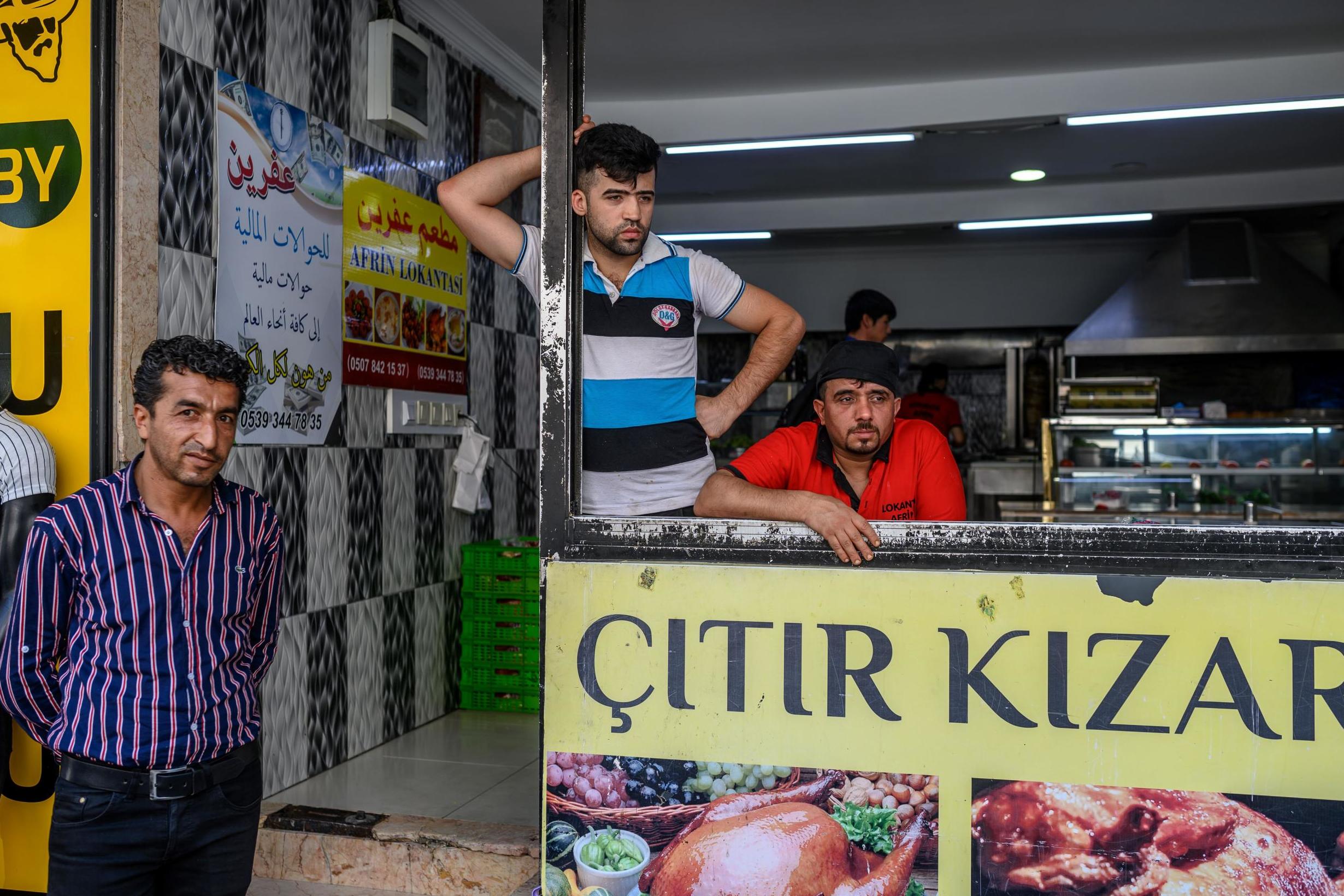
My father asks whether you can take us to the Greek side,” the eight-year-old girl said, translating from Arabic to Turkish. Her wishful smile hid her family’s misery, along with that of countless others camped at Doyran in Turkey, next to the border with Greece.
Next to her stood a clean-cut young man, and beside her, on the dirt, sat a tiny woman, knees curled up around her overcoat, tightly holding a toddler. She avoided eye contact. Her 11-year-old son followed the conversation in Turkish.
There was a wave of excitement when Turkey announced on 28 February that its borders would be unsealed to nearly 4 million displaced Syrians and other refugees, should they wish to cross into Europe.
Days later, when Greece took brutal steps to prevent the crossings, that wave of hope came crashing down onto the shore of despair.
The initial decision came following a Syrian regime attack that killed 36 Turkish soldiers in Idlib, a town in northwest Syria where Turkish troops had been dispatched to help defend a rebel stronghold.
It meant a de facto termination of the 2016 deal Ankara had struck with the European Union, requiring Turkey to buffer refugee crossings to the west in return for more than €6bn of financial aid from EU members, terrified at the prospect of an unmanageable influx of migrants.
The deal’s other terms included a roadmap for ending the need for Turkish citizens to get a visa for short-term visits to the EU, as well as the EU agreeing that for every Syrian being returned to Turkey after illegally crossing into the Greek islands, another Syrian refugee in Turkey would be resettled in the EU.
As migrant groups around the border rapidly multiplied, European leaders and Turkish government officials gathered in Brussels to discuss the lack of implementation of the 2016 deal, but although the meeting achieved some progress, it failed to deliver solid results.
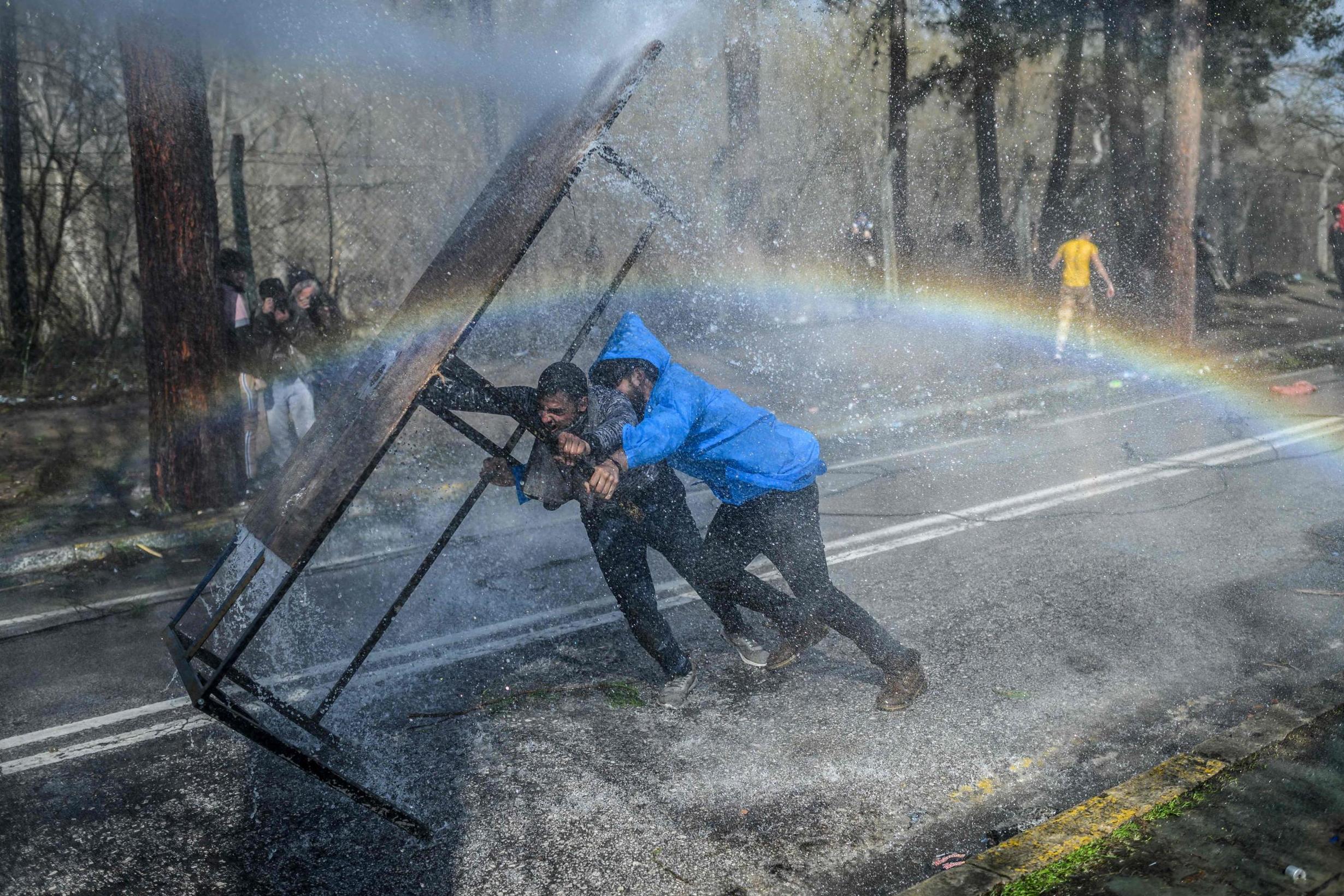
Weeks after the crisis, thousands are still camped close to the Greek border, defying the Covid-19 pandemic as well as intensified security measures to seek passage into Europe.
It was just few days ago that 5,800 were finally removed and sent to camps in nine provinces at a time when the government tried control the rapid spread of Covid-19 and the death toll reached 501 on Saturday.
“This was a precautional measure we had to take,” Suleyman Soylu, the Interior Minister said, according to Anadolu News Agency.
“However, nobody should feel relaxed. Once this (coronavirus) risk is over, we cannot say ‘no’ to anyone who would wish to leave.”
Why leave Turkey after nine years?
The little girl’s family left Mersin, a Turkish coastal town, in a bus with dozens of others after selling all their furniture, cancelling an already troubled lease and saying farewell to the few friends they had made over the previous four and a half years.
It was not an easy decision for Abdullatif Aljanem, as he recalled the circumstances under which they had been forced to leave Aleppo after their home was left in ruins by a regime airstrike.
“I had no other choice then, neither do I now,” he said, strongly grasping at the straps on his filled backpack.
“There is no work, there is no money, there is no future here for me or my children.”
I haven’t had work for two months and couldn’t pay my rent, along with bills for electricity, water and gas for heating
The world’s largest Syrian refugee community is scattered all around Turkey, with over 500,000 alone living in Istanbul, the country’s economic hub.
More than a dozen well-organised camps, which were prompted by thousands crossing the 911km Syrian border after violence erupted in 2011, now lie deserted by all but approximately 68,000 refugees.
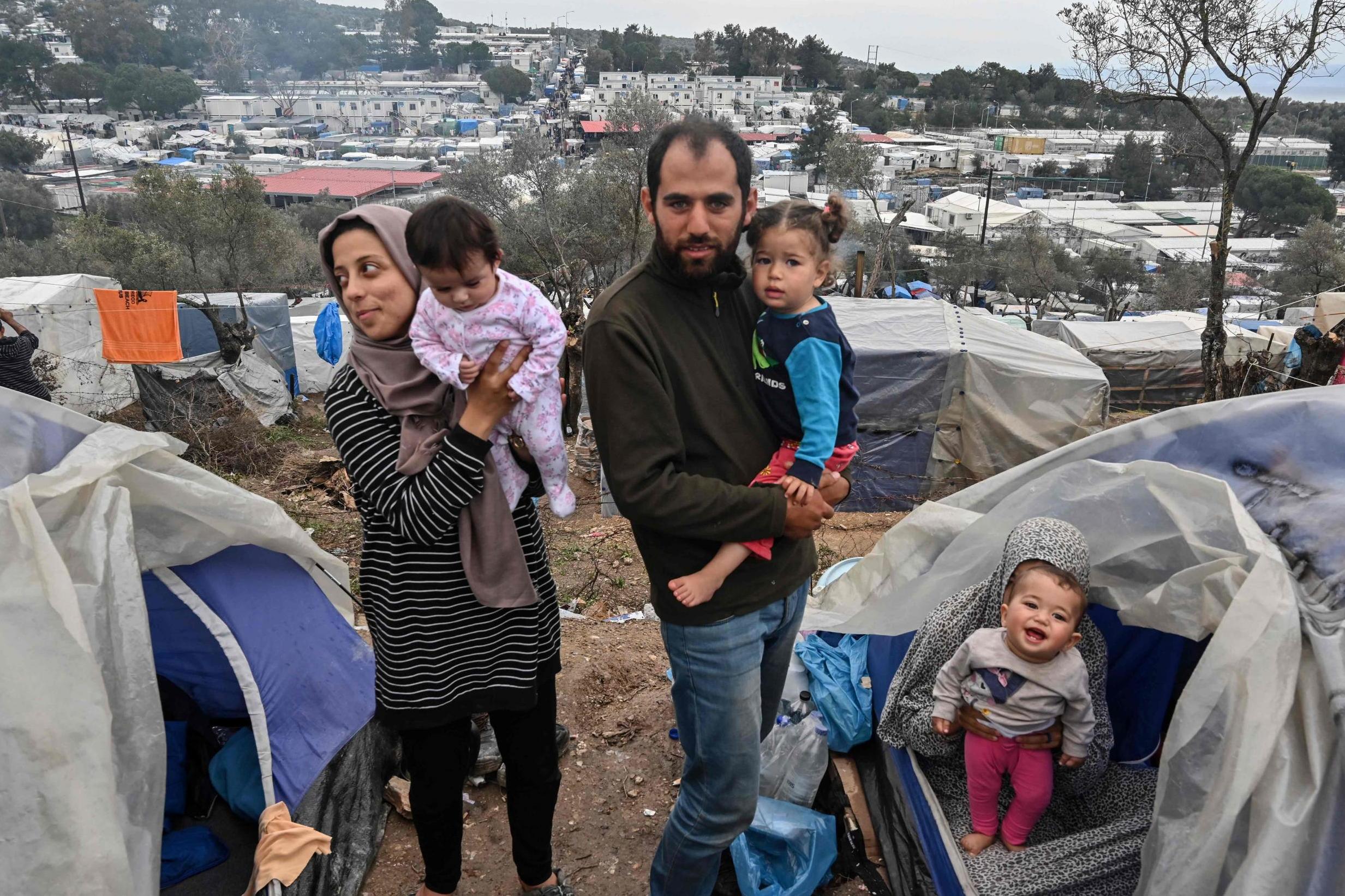
Mass movement from the relative safety of organised camps to unrestricted but challenging urban environments soon gained pace, and was officially encouraged around 2014 as both Syrians and Ankara realised that a regime change in Damascus would take much longer than anticipated.
Syrians were then issued “temporary protection cards” in towns of their choosing, which allowed them to receive free healthcare, education, social aid and translation services.
Further, around 1.7 million benefited from an EU-funded monthly allowance of 120 TL per person, given to vulnerable families such as those with over three children or with a disabled member, according to the Turkish immigration authority.
“I haven’t had work for two months and couldn’t pay my 700 TL rent, along with bills for electricity, water, and gas for heating,” Aljanem said.
“I don’t know what waits for me in Greece, but I have to try.”
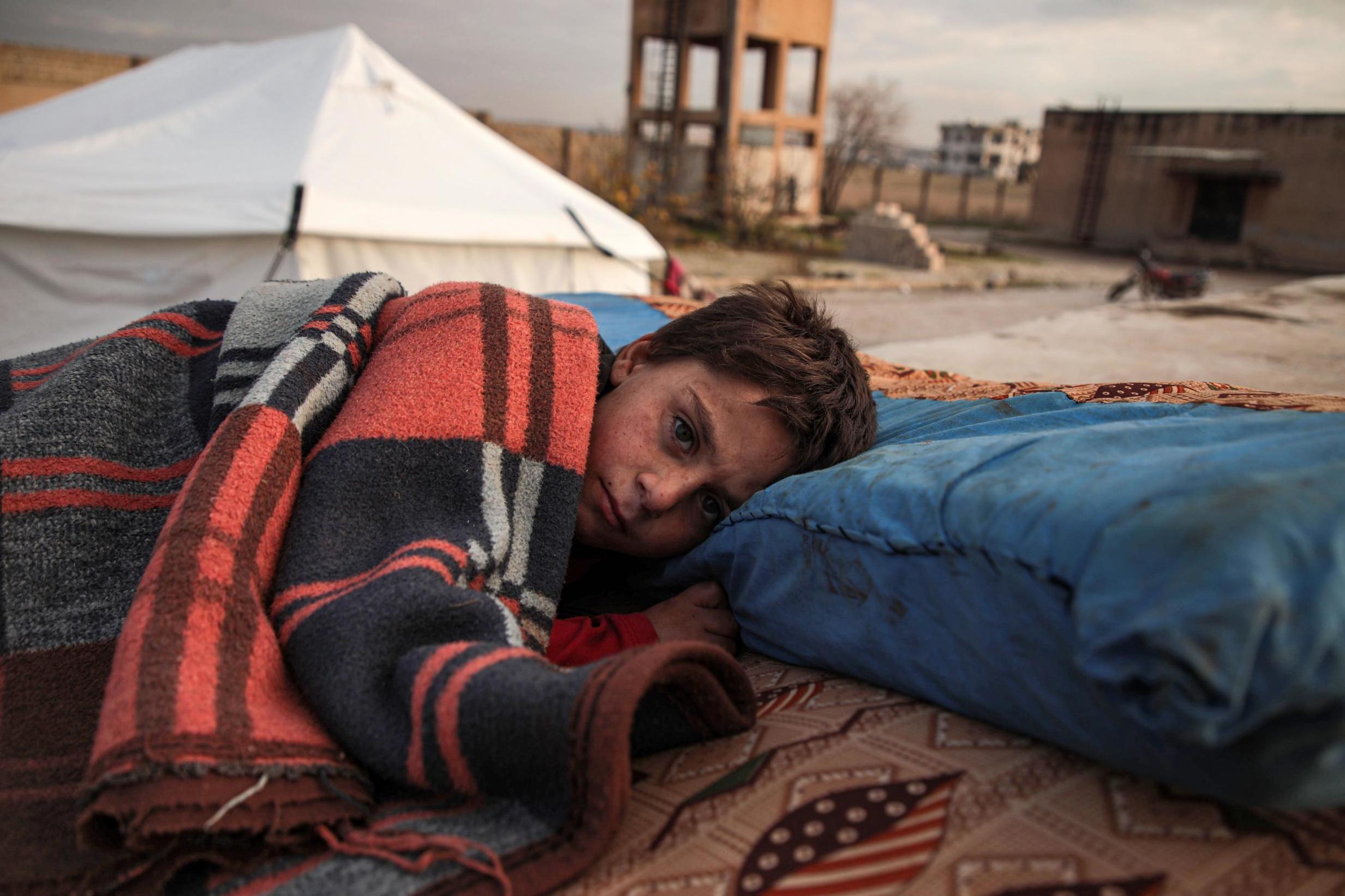
Many joined in his outcry with stories of their own: another young Syrian from Mersin travelled with his three toddlers, one of whom had just gone through surgery; an Afghani boy said he hadn’t received a temporary card or any benefits.
Turkey is part of the 1951 UN Refugee Convention, which regulates refugee settlements, but the country only accepts asylum seekers from Europe, hosting other nationals only until their applications to a third country have been processed.
Without proper refugee or citizenship status, it’s impossible for these people – or anyone – to plan their future
The majority of people piled along the Greek border are asylum seekers and illegal migrants that have got stuck in their own no man’s land, looking for an exit.
Some here see the Syrians as being more privileged. Although not officially referred to as “refugees”, as a group they are at least dealt with separately.
To be a Syrian ‘under protection’ in Turkey
In recent years, the Turkish parliament has passed several pieces of legislation to improve the handling of a growing Syrian refugee population and the complications that have come with it.
All, however, have fallen short of introducing rights and liberties to help Syrians lead entirely self-sufficient lives.
“Without proper refugee or citizenship status, it’s impossible for these people – or anyone – to plan their future anywhere in the world,” said Metin Corabatir, president of the Ankara-based Research Centre on Asylum and Migration.
“A 2017 piece of legislation allows Syrians to apply for work through a future employer, but it’s a highly complicated procedure, rarely followed. They work unregistered, so cannot claim anything in the face of injustices or mistreatments.”
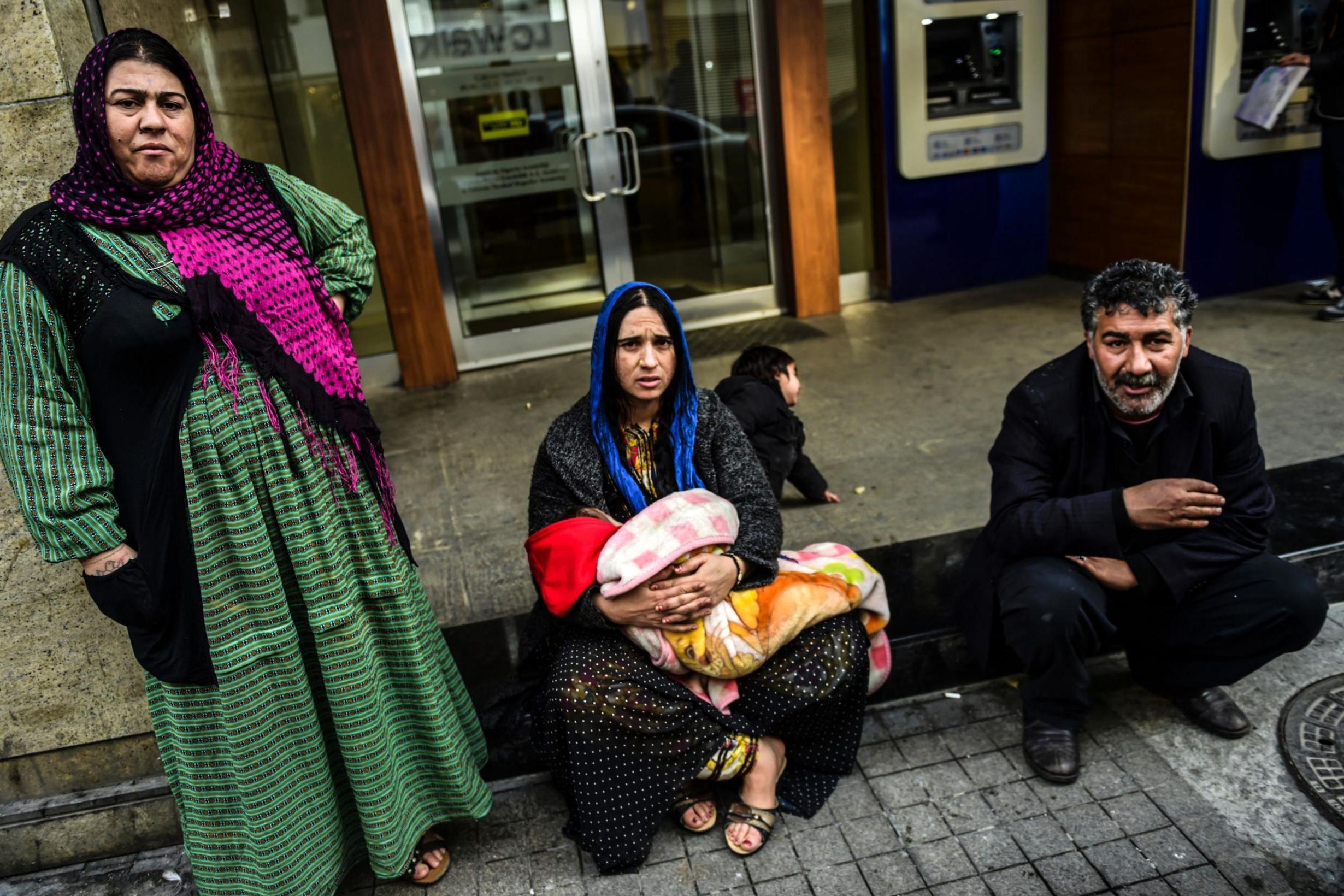
A few months earlier, in a two-bedroom flat in a half-finished building in Esenler, an Istanbul district with a large Syrian population, Hamza, his wife and his 18-month-old son joined three other families for the night.
“I was lucky to get 2,000 TL a month as a welder, I had a good Turkish boss, yet it was not enough,” said the 30-year-old, trying to soothe his son crying for a plastic swing, the only item left from their previous flat.
“I had to look after my brother, who cannot work because of his past injuries, my ill mother, wife and son, on top of the 800 TL rent and expenses. We couldn’t qualify for the extra allowance.”
The rest is the same story as Aljanem’s – he sold the furniture, cancelled the lease and was sheltered by their neighbours. But instead of looking towards Greece, he and his family were waiting for the next bus back to Syria, sponsored by the Esenler municipality as part of the “Return Home” campaign.
Hamza got excited while talking about their three-storey home outside Damascus, although he was not sure whether it still existed. He wanted to visit and reclaim family land, but feared being on a regime blacklist, as he left in opposition.
The campaign in Esenler has been picked up by several other districts, adding to the 340,000 voluntary returns counted by the Ministry of Interior after Turkey secured certain pockets in northern Syria via the three cross-border military operations it’s conducted since 2016.
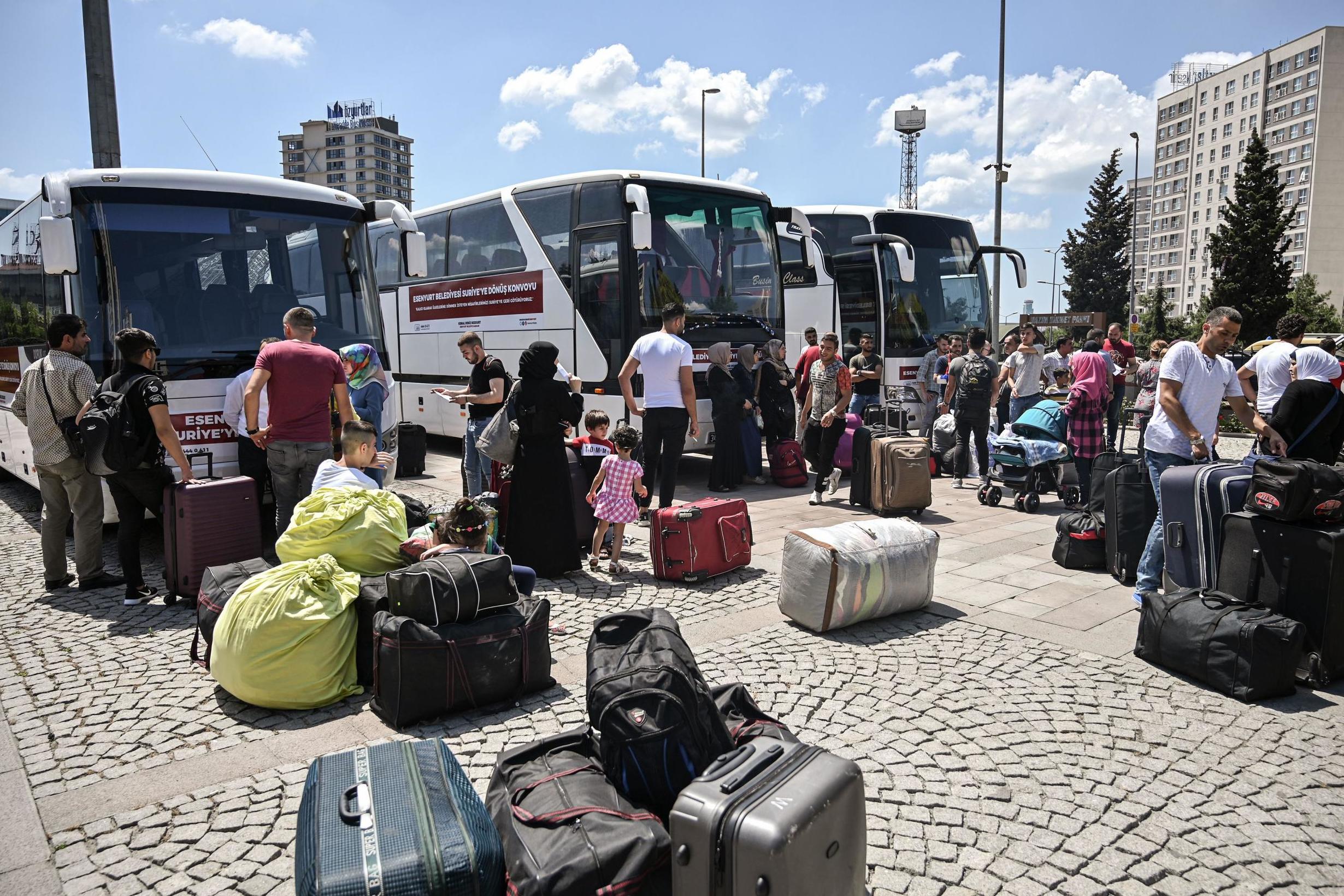
The initial plan was to set up a 30km by 480km safe zone, or “security corridor”, in northern Syria, where up to 2 million Syrians could repatriate, but this failed.
Now, the YPG, a Syrian-Kurdish group that Ankara says is linked to the PKK, a Kurdish separatist group listed as a terror organisation by the US and the EU, currently holds a large portion of the envisioned safe zone.
Safe zone – is mass repatriation possible?
For many immigration experts, the idea of the mass repatriation of Syrians is a thorny ethical issue, despite reassurances from Turkish authorities that it would be on a voluntary basis and in compliance with international law.
“You need houses, hospitals, schools and individual decision makers among Syrians that show they can survive under those conditions,” said Omer Kadkoy of the Economic Policy Research Foundation of Turkey (Tepav).
“Otherwise, once they realise they cannot get their lives together, they will come back to Turkey, creating another refugee cycle.”
Furthermore, previous data on refugee movements shows that displaced people tend to repatriate to areas of their cultural origin.
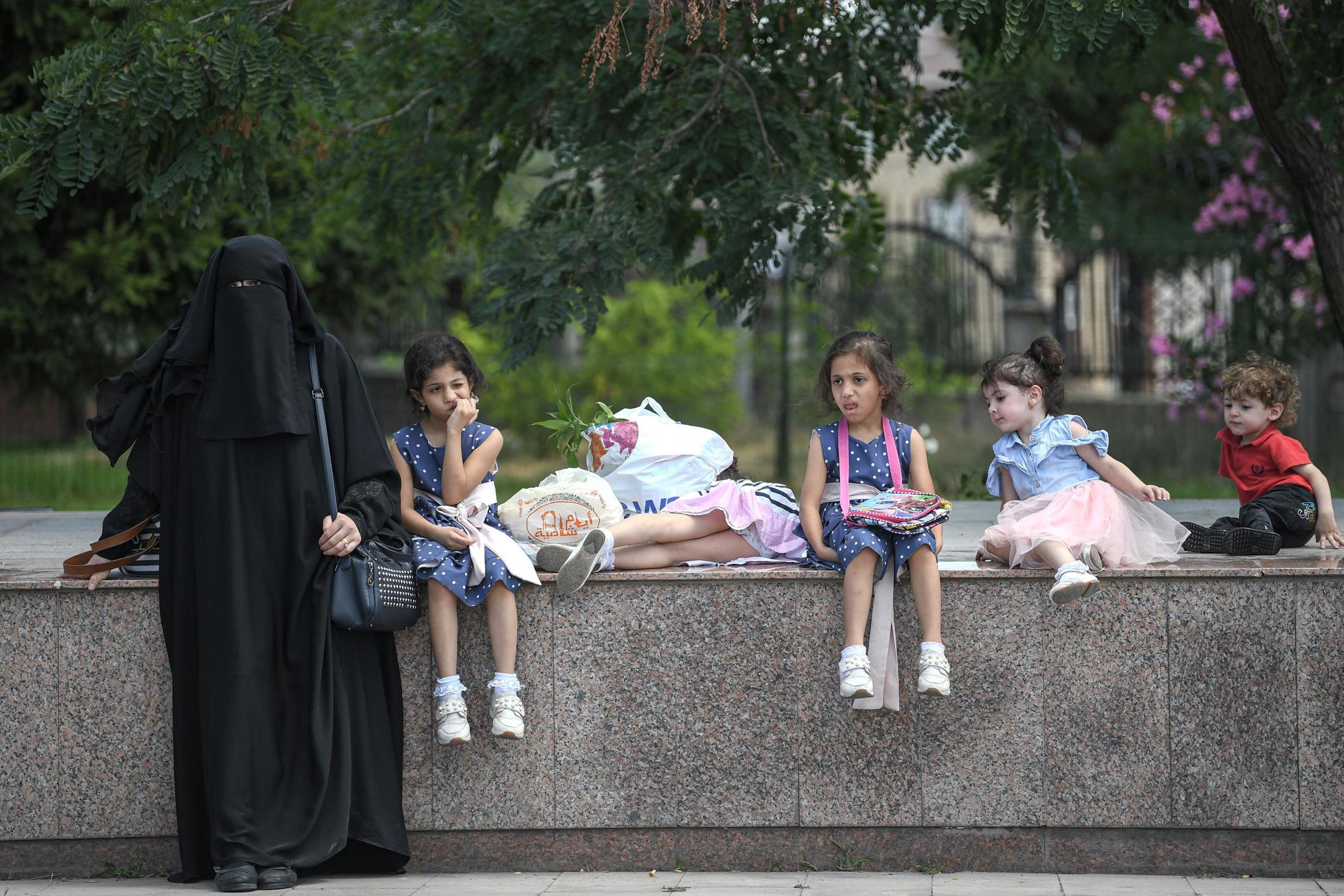
“You pull someone from Istanbul’s urban life and place them in a rural area just because it is safe – it doesn’t make sense,” said Deniz Sert, an associate professor of international relations at Istanbul’s Ozyegin University.
“How can you make sure that they are all voluntary? Look at Afghanistan, years later, there are still no mass returns.”
In Turkey, 64 per cent of Syrians are from Aleppo, 8 per cent from Idlib, another 8 per cent from Hasakah, 5 per cent from Raqqa, 5 per cent from Deir ez-Zor, 4 per cent from Hama, 4 per cent from Damascus and 2 per cent from Jarablus, according to a foreign press briefing from Suleyman Soylu, Turkey’s interior minister.
To complicate matters, a rapidly declining public acceptance of the refugee population in Turkey has emerged as an alarming hurdle to the integration of displaced Syrians
“Now, 17 per cent of this territory is under the control of Turkey and the opposition, as for the rest, the regime has 66 per cent and YPG has 17 per cent,” Soylu specified last October before the launch of Operation Peace Spring, the military operation that aimed to create the safe zone.
“Then what are we supposed to do? Send them there and tell them to die?”
Since then, analysts claim there has not been a dramatic change on the ground.
“The political climate in Syria and the military situation are factors driving Syrians away from the country, and I can’t see that changing,” said Dareen Khalifa of the Washington-based International Crisis Group.
“Those who are living in dire situations in Turkey might relocate to areas from Tell Abyad to Ras al-Ain extending south, but the majority of refugees are not inclined to return to a war-torn country.”
Turks and Syrian refugees – a future together?
To complicate matters, a rapidly declining public acceptance of the refugee population in Turkey has emerged as an alarming hurdle to the integration of displaced Syrians.
Around 81 per cent in the country hold “negative perceptions” about Syrian refugees, according to a public survey by Metropoll, an Ankara-based polling company, that concluded last August.
Nearly three-quarters of respondents said that they believe Syrians hurt the Turkish economy, while just under half wanted them extradited as a permanent solution to refugee-related social, cultural and financial problems.
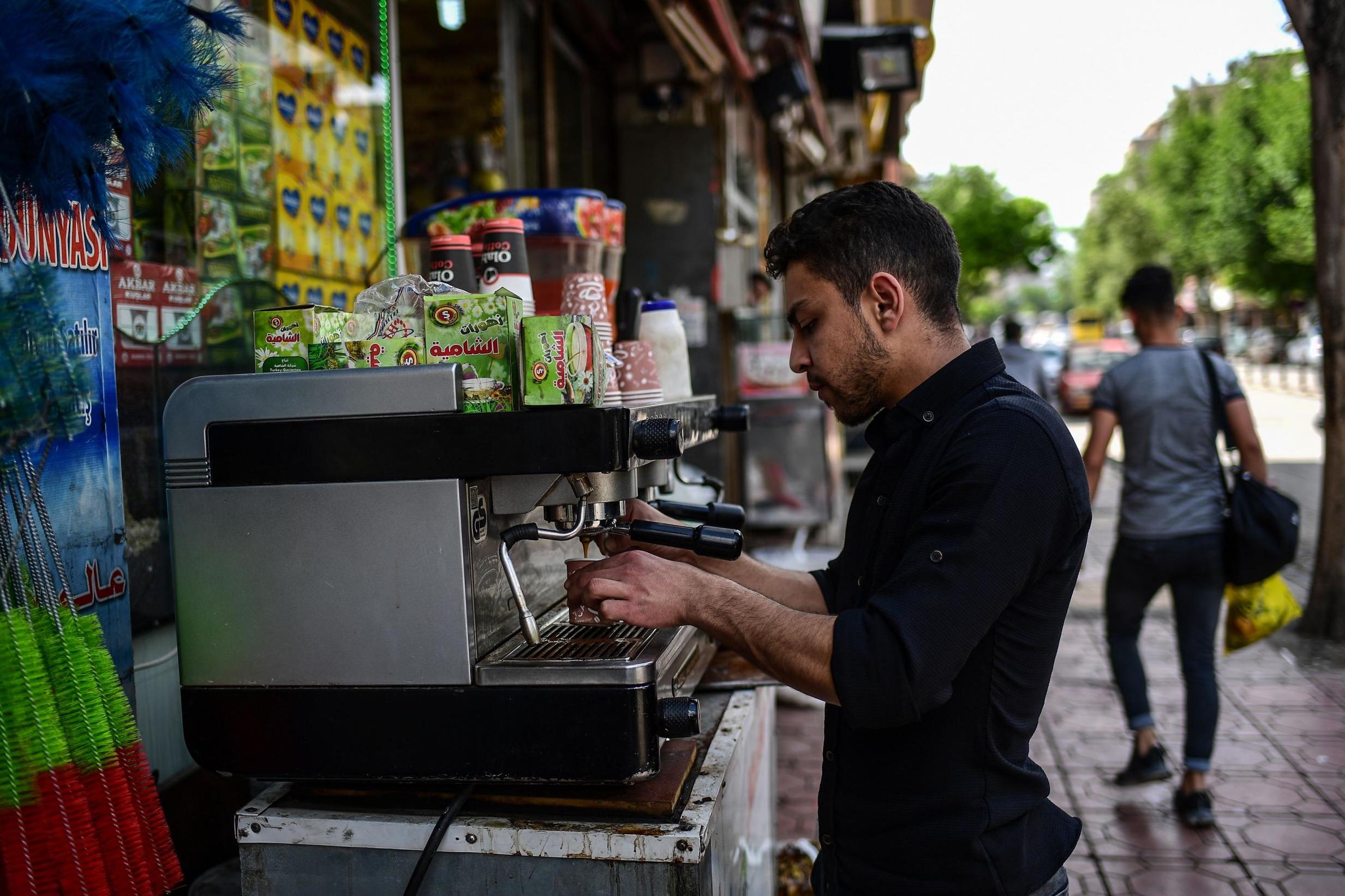
Politicising the refugee conflict, rather than treating it as a purely humanitarian one, as it was when it first emerged, prepared the grounds for negative profiling, Corabatir claimed.
“In the beginning of the crisis, the governing party didn’t want to share control over Syrians with international organisations and the civil society,” he said.
“The opposition, on the other hand, called the displaced people ‘Erdogan’s Syrians’, suggesting the group would build his future electorate, further polarising the community.”
Turkish officials’ statements that more than $40bn (£33bn) has been spent on Syrians in the absence of sufficient international funds haven’t helped improve public perceptions either.
As a refugee with a ‘temporary protection card’, he must apply to the local police for a travel document each time he leaves town. It takes days to get approval
In a country of 75 million where the unemployment rate floats around 14 per cent, cheap refugee labour is still considered a major threat.
Since 2011, Syrians have founded more than 10,000 companies with at least 60 per cent Syrian ownership, hiring an average of seven Syrians, and therefore supporting at least 250,000 family members, Tepav stated in its August 2019 report.
Sadly, positive refugee stories hardly ever hit the headlines.
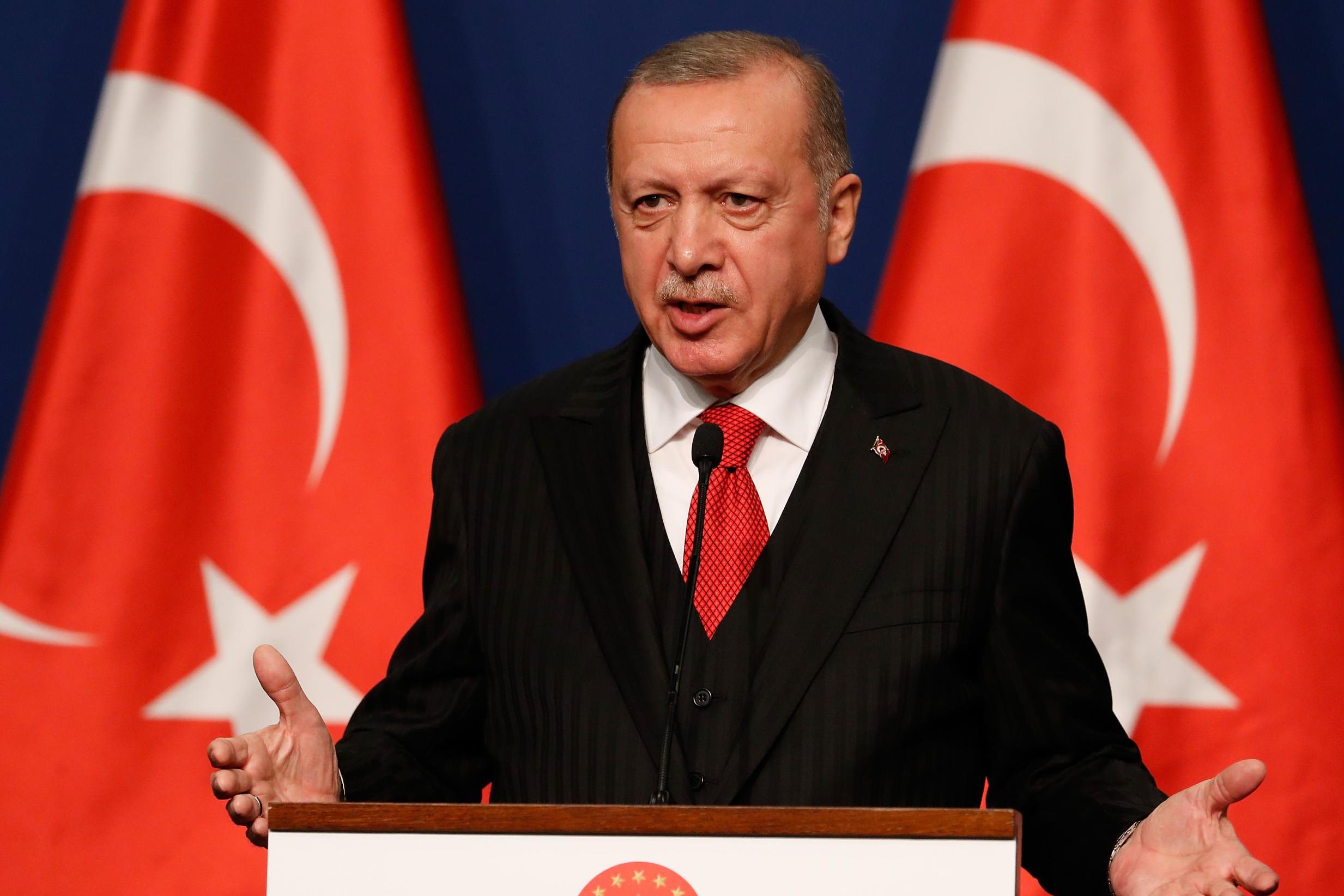
Syrian refugee businessmen – yes, they exist
In early February, dozens of Syrian investors met at a hotel in Istanbul’s Merter district, a central commercial hub, to discuss ways to improve their trading and business positions in Turkey.
After a round of presentations from Turkish officials, Saleh, a father of four and owner of a petroleum company with origins in Syria’s Deir ez-Zor, remained disappointed.
“We love living here. Turkey gave us a chance that no Arabic country did,” he said in English, clearly agitated.
“Now, I have a company with a brand value of $1m and more than 20 employees who are mostly Turkish, but I have no right to travel, no long-term residency, and certainly, even after six years, no nationality.”
Saleh’s application was not one of the 102,000 citizenships the Ministry of Interior has so far granted to Syrians.
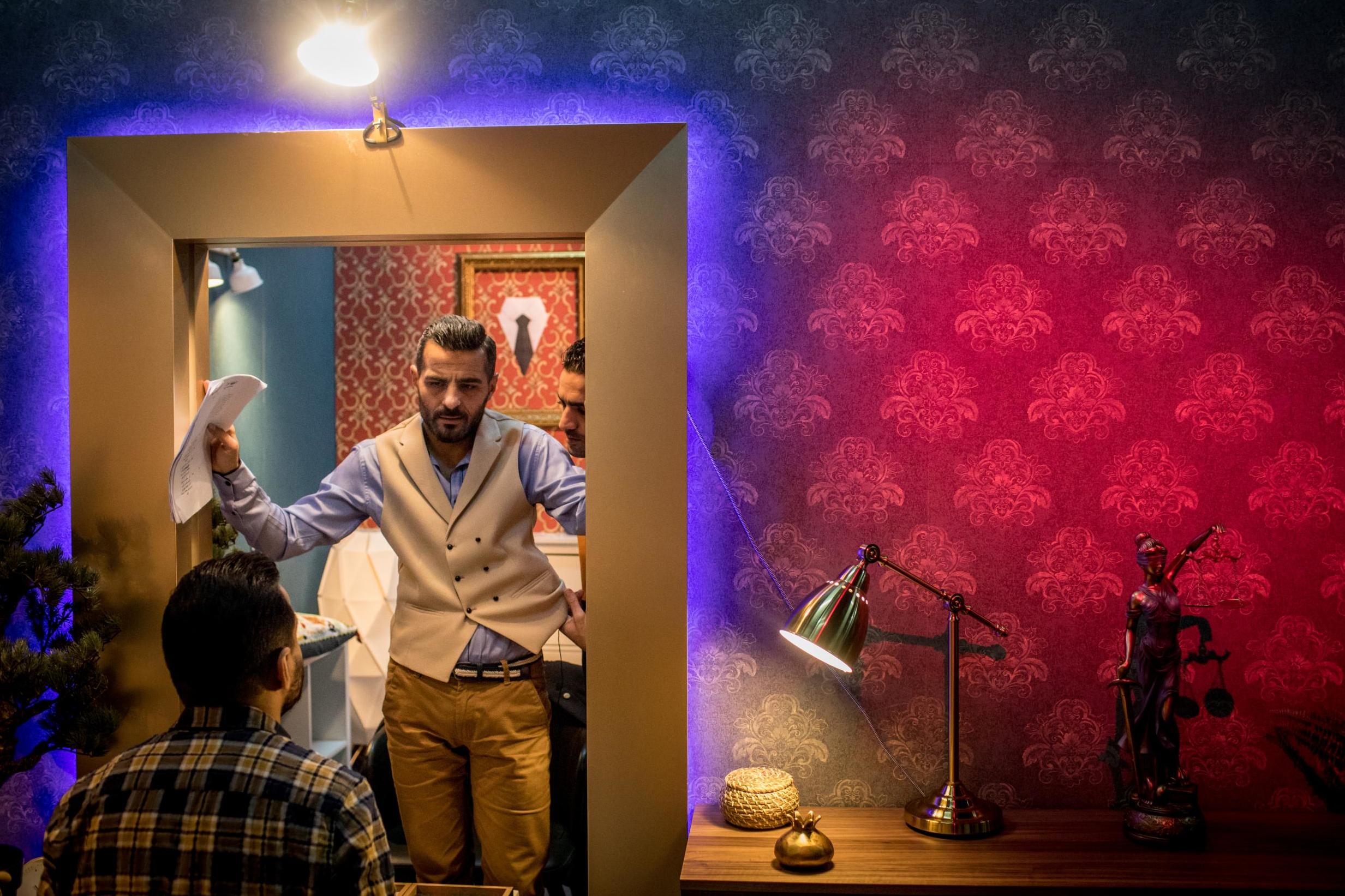
“I am not a burden here. My customers are Turkish engineers. I assist them in building their country. I am providing to them. So who has the ultimate benefit here?”
Ahmet Velioglu, who co-sponsored the event, is the executive manager of Comfort Group, a tourism agency that has offices in Turkey, Saudi Arabia, Bahrain and Kuwait.
Yet, as a refugee with a “temporary protection card”, he must apply to the local police for a travel document each time he leaves town. It takes days to get approval.
“Yes, the government spent money for Syrians, but these people are investors – they bring in tourists, bring cash into the country,” he said, pointing at dozens of businessmen interacting in a conference room.
In this country, even dogs have a passport for travel, but we don’t. Here is a big prison for Syrians
“The media only talks about those living in poverty.”
He wants to expand his business, but not without certain assurances.
“The problem is with the uncertainty of our status here. Today we are allowed to stay, but what will happen to my investment if we’re told to leave tomorrow?”
In Istanbul’s Aksaray district, Nizar Bitar sat quietly in the corner of one of his bustling restaurants. He owns a chain of ten shops worth $12m in brand value, which he launched from a basement for just $1,000.
“I pay taxes more than many Turkish businessmen do,” said the old man, referred as the “Father of Syrians” because of his intense aid work.
“In this country, even dogs have a passport for travel, but we don’t. Here is a big prison for Syrians.”
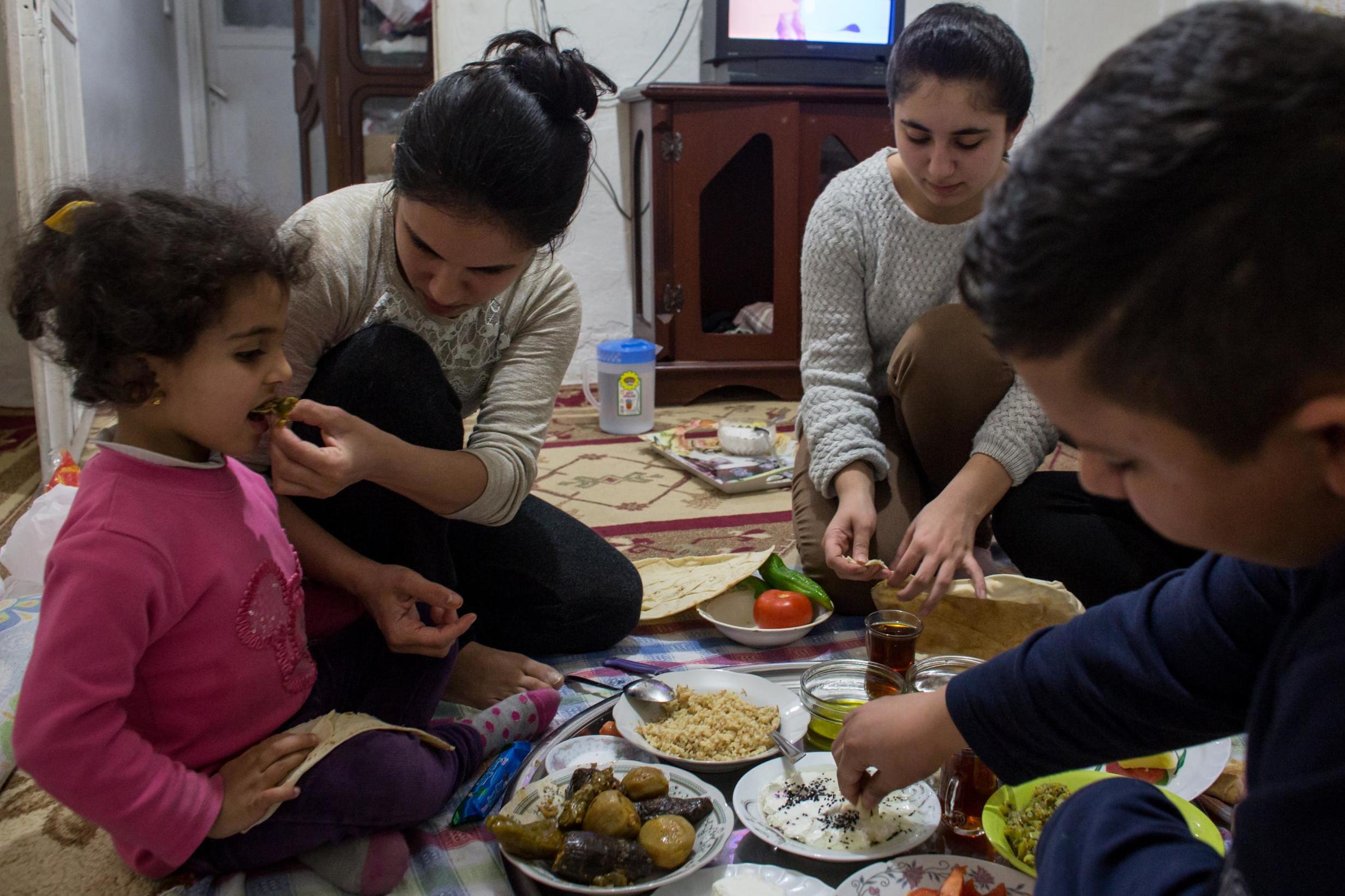
In 2018, the ombudsman of the Turkish parliament predicted in a report that “a significant portion of the Syrians in Turkey will stay permanently in the country, because it does not seem possible to establish an atmosphere of peace and tranquillity in Syria in the short term”.
The report also highlighted the need for politicians to conduct a risk assessment before launching a systematic integration policy for Syrians.
For many political analysts, President Erdogan has already paid the price of his temporal refugee policies and increasing refugee populations in big cities, as his party lost their nationwide grip in the 2019 local elections.
In Istanbul, Ekrem Imamoglu, the opposition candidate who was elected as mayor, has introduced major policy changes, including a well-disciplined approach to regulate the city’s nearly 500,000 Syrian refugees.
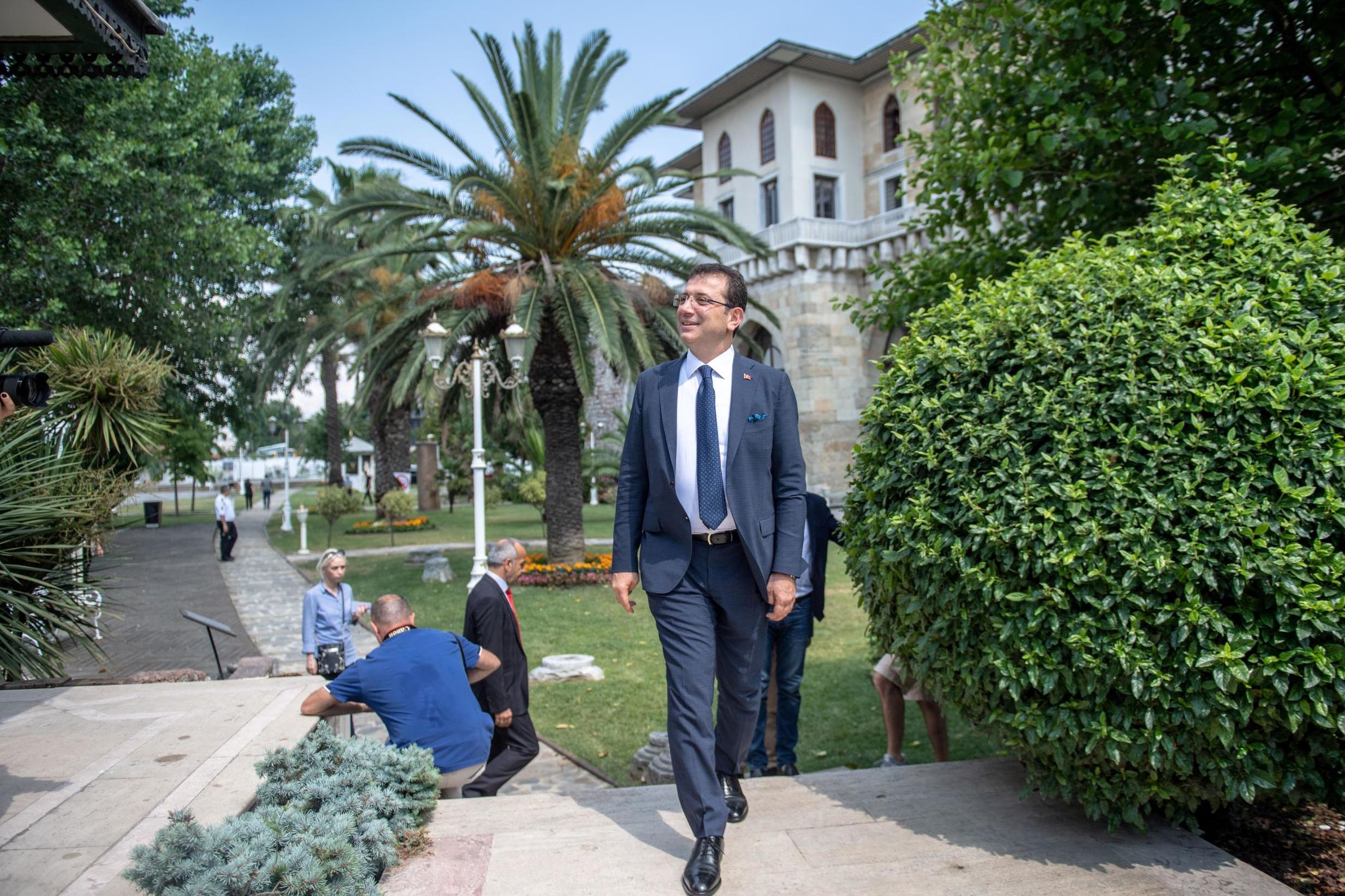
In a countermove, the Ministry of Interior has obliged Syrians who were registered in other cities to leave Istanbul, while strongly denying detailed reports about forced extraditions to Syria.
“In each election, all parties say ‘Syrians, out!’” Bitar exclaimed. “Why do they keep using our name for votes? We are trapped here, where to go?”
The immigration bureaucracy has worked hard for Syrians’ “harmonisation” – a term Kadkoy of Tepav claimed was used for political safety when “integration” implied permanency.
According to Recep Batu, the head of the Turkey’s immigration directorate, however, it implied mutual understanding.
“In order to talk about ‘harmonisation’, first people should be able to stand on their own feet, which means the ability to work, and secondly, it’s about the lifting of the language barrier, which is crucial,” he said, speaking at his offices in Istanbul.
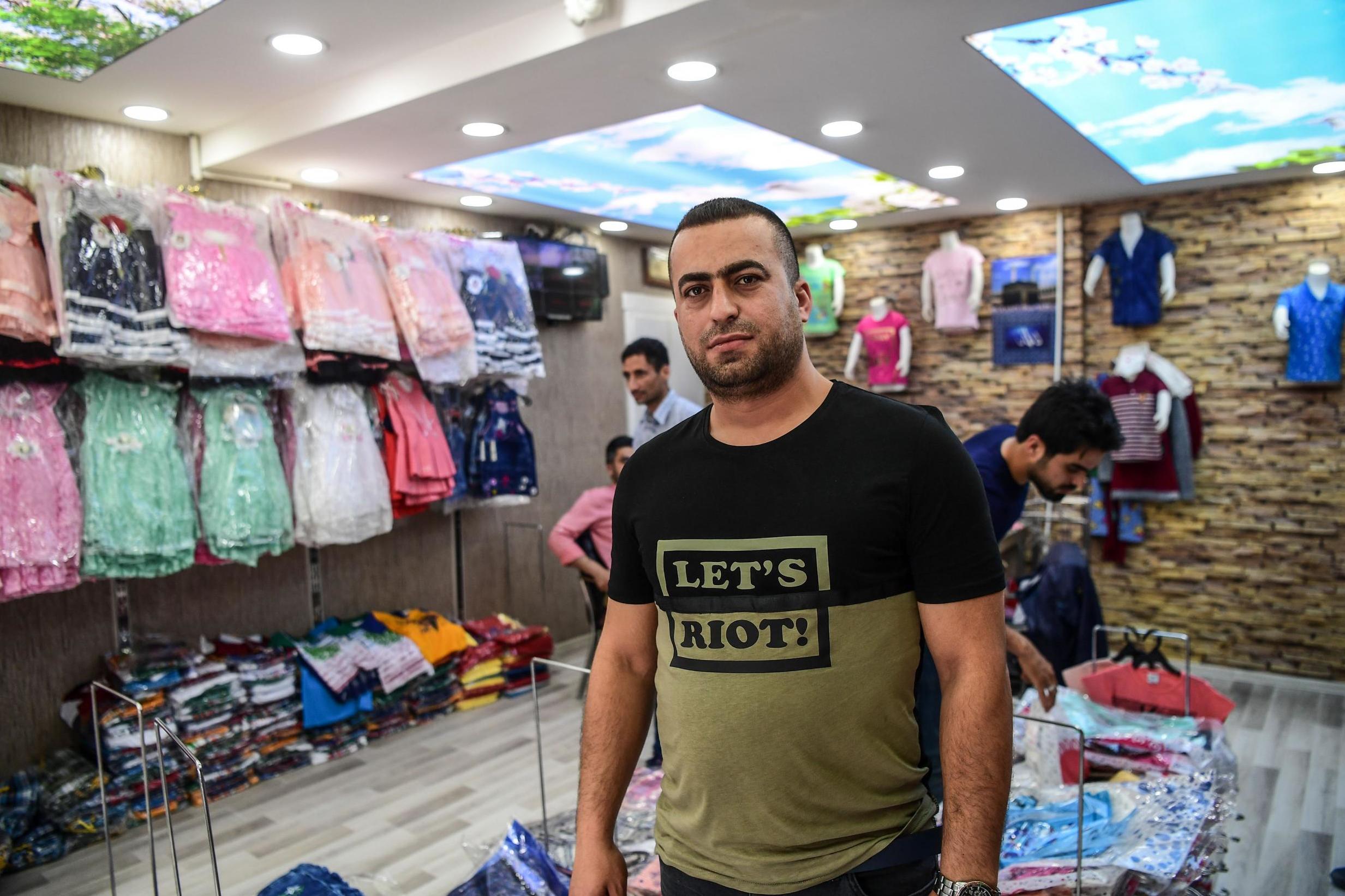
“There is a negative feeling about Syrians, so we need to clarify how much of a burden these people really are.”
Recently, information leaflets were distributed throughout Turkey, titled “Wrongs Known as Correct”, to stop misleading information circulating about Syrians.
“The crime rate among Syrians is not high, actually is pretty low; Syrians are not admitted to universities without exams; all beggars are not Syrians; Syrians are not given free apartments; Turkey does not pay them salaries or hire them in government offices” read some of the 14 facts.
Most of the time, I don’t say I’m Syrian to avoid the look in people’s faces. I prefer to say I’m Palestinian – much easier
To further interaction, immigration offices have held neighbourhood meetings with community leaders and Syrians, and have instructed imams, schoolteachers and regional registrars to spread correct data about Syrians.
For equality-based harmonisation, Syrians would, from now on, contribute towards their medical bills at hospitals and pharmacies just like Turkish citizens, while officials considered cancelling the travel document for registered refugees, Batu added.
Lost in ‘harmonisation’
After nine years, young Syrians have found it particularly hard to plan a future in Turkey when they haven’t been able to work or travel freely, have encountered constant political talk about their possible return, and have eavesdropped on reports about Turks’ resentment of them.
Local and international civil society has seen the remedy as bringing Syrians and Turks together to bridge misconceptions and differences.
Some Turkish municipalities have organised mix-nationality football matches and handcraft workshops, while the group Re:Coded, which offers a training programme for conflict-afflicted populations, has used coding to bring people together.
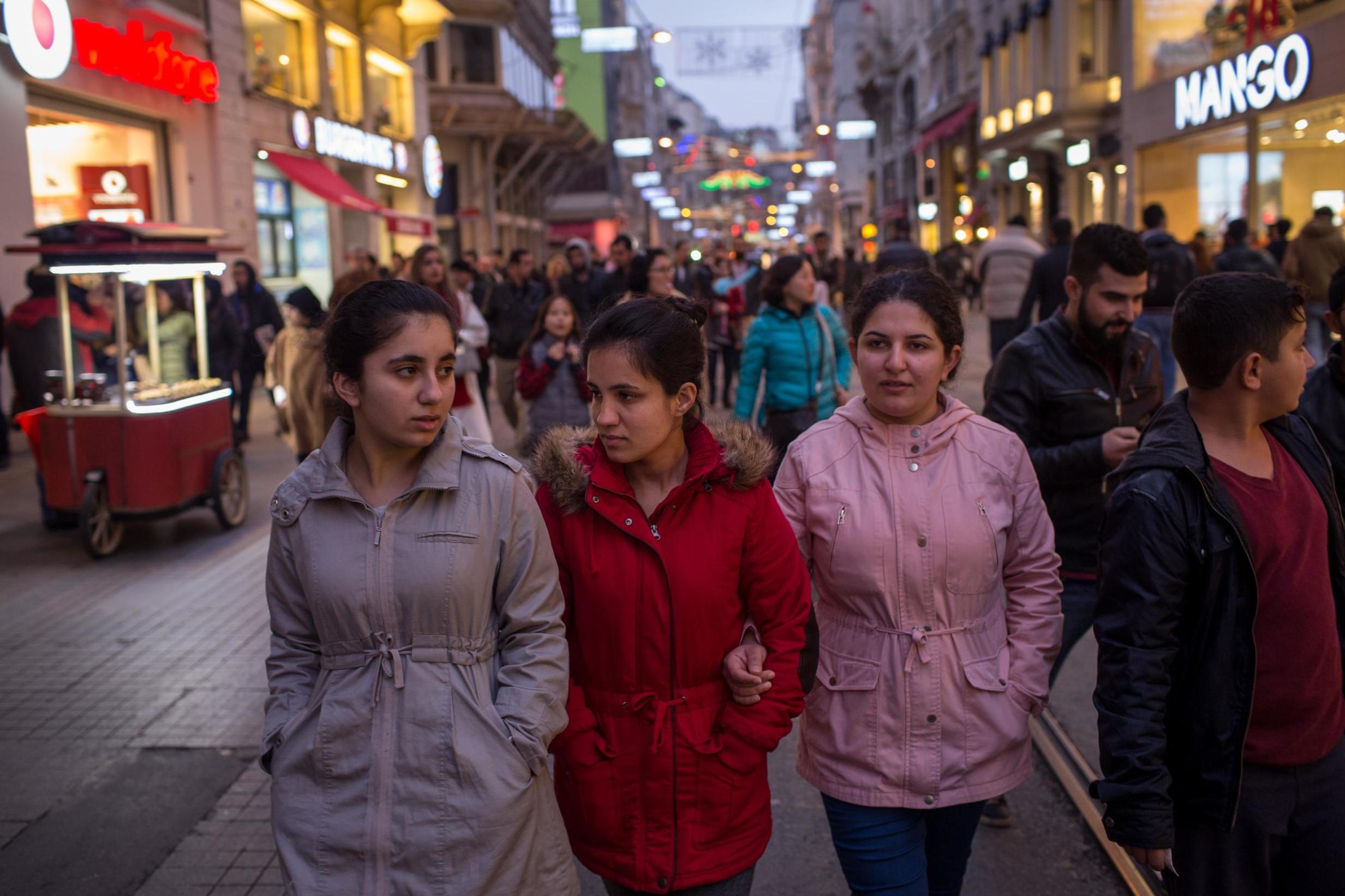
In Istanbul’s Beyoglu district, also known as Turkey’s melting pot, Syrians and Turks mingled behind their laptops, working on their next coding project.
“In our programmes, 60 to 65 per cent of participants are Syrians and 35 per cent are Turkish,” said Marcello Bonatto, a co-founder of Re:Coded.
“We support social cohesion, train high-skilled individuals for high-placed jobs, and try to change a bit of the traditional view of refugees.”
Sam, a Palestinian-origin Syrian from Hama, joined the programme in Gaziantep, a southern town close to the Syrian border. He went on to become one of its part-time trainers in Istanbul while continuing his Turkish studies.
“Here, I met Turkish people who had political views against Syrians, all second hand, which changed after they met me,” he said.
Outside the Re:Coded training grounds, however, life continues as usual.
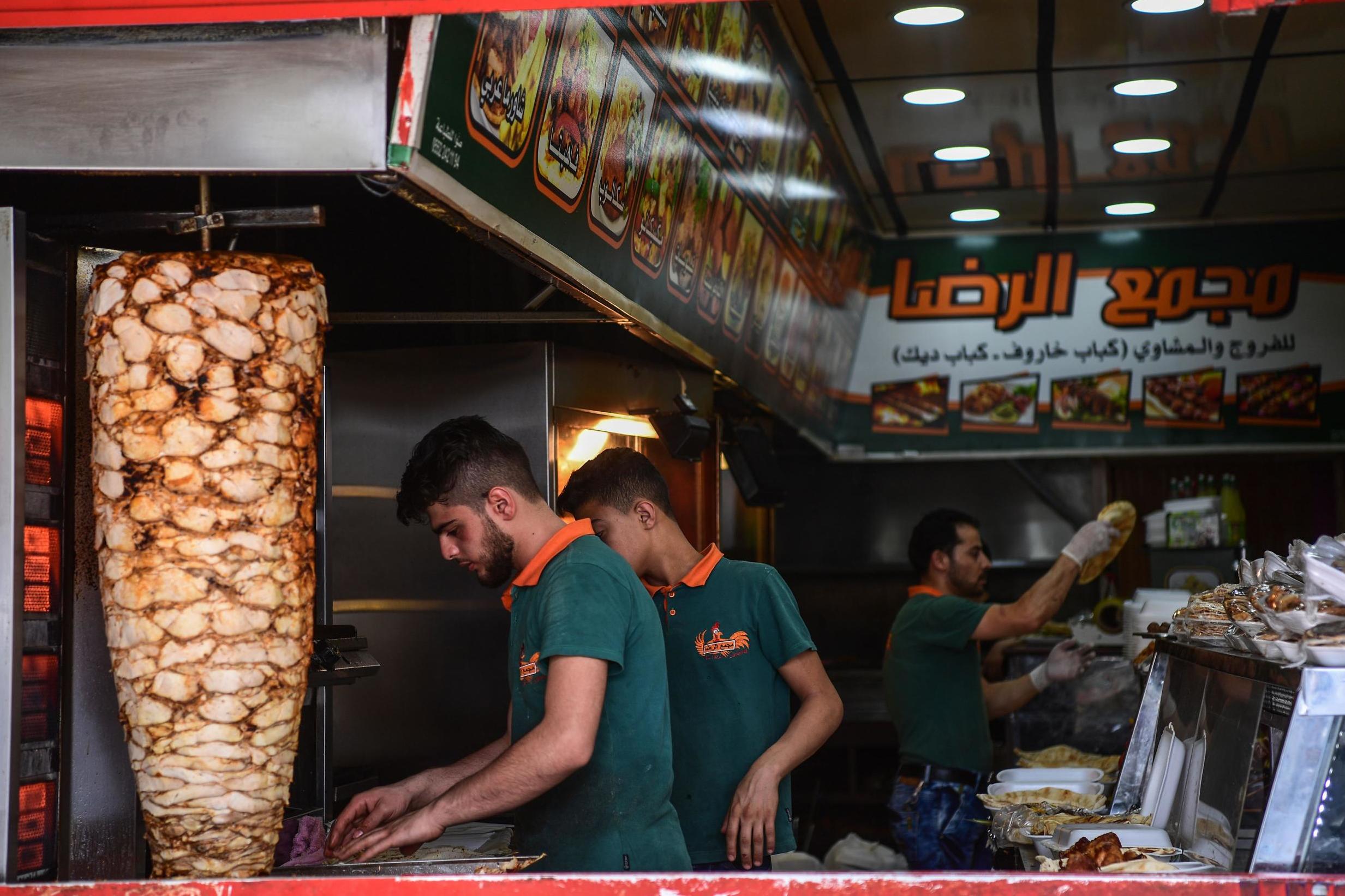
“Most of the time, I don’t say I’m Syrian to avoid the look in people’s faces,” Sam said. “I prefer to say I’m Palestinian – much easier.”
For younger Syrians, nearly 500,000 of whom were born in Turkey, integration takes place in schools. Children such as Aljanem’s daughter speak and write Turkish, translate for their parents yet share the same uncertainty as their kin.
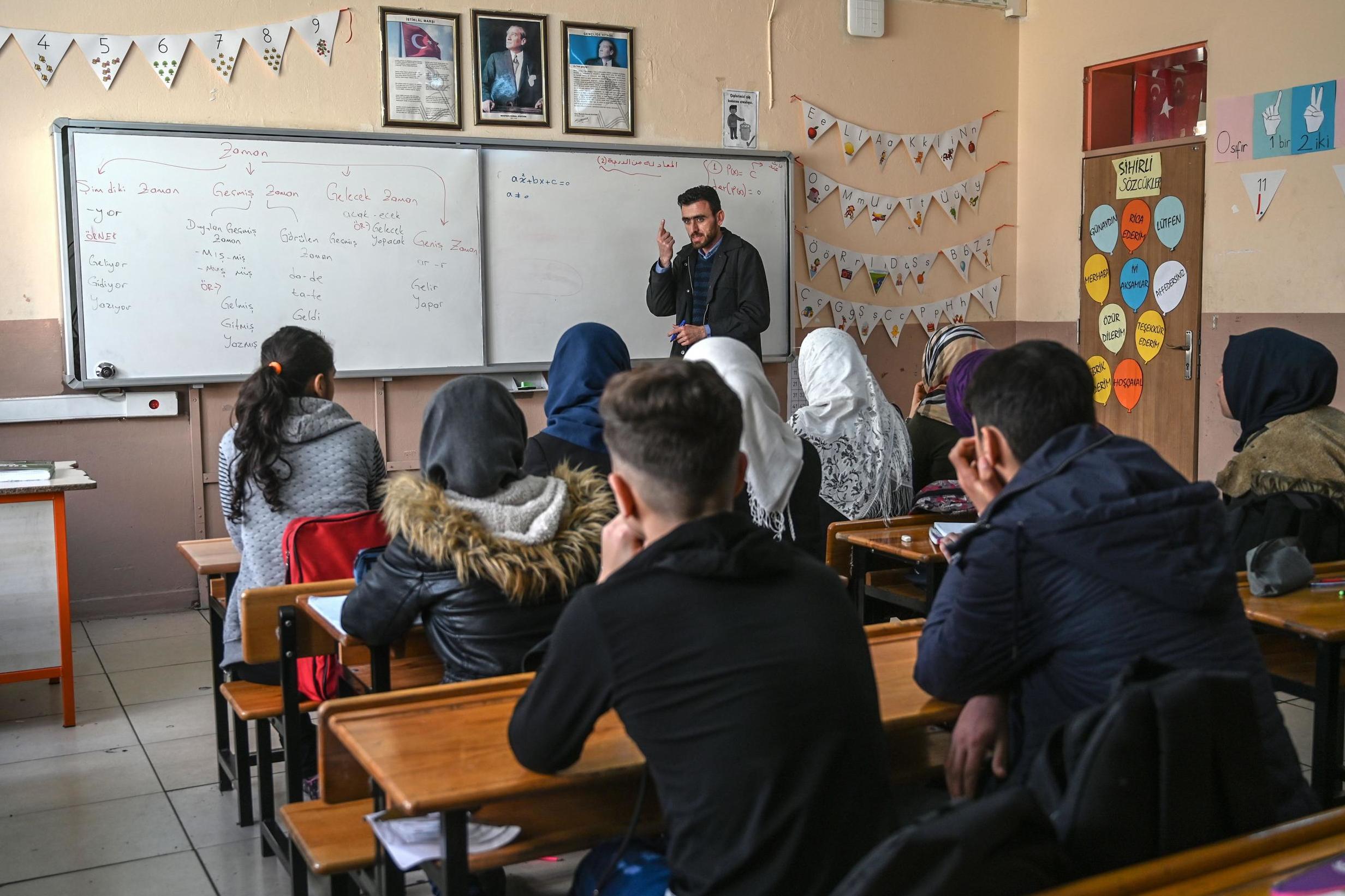
“My children ask me all the time: ‘What is the use of learning the language, the culture, if we don’t have the guarantee to stay here?’” said Bitar, who has five boys.
“The ultimate question is – do they want us here or not?”
Some Syrian children face abuse at school by Turkish classmates, as minors are inclined to mirror their parents and peers, activists have claimed.
“Children that I work with sometimes come to me and quietly complain about insults, swears they hear from Turkish children,” said Zeynep Guven, an education volunteer.
“It is very sad, when everyone, after so many years, should be working towards cohesion and not fostering alienation.”
Academic, social and field studies conducted since 2013 point to the need for social cohesion. But there also needs to be a nationwide look at the current reality and strong political will to attend to it.
“Let’s face the reality – no matter what happens in Syria, Syrians will not return voluntarily,” said Murat Erdogan, a professor of political sciences and a migration expert with Istanbul’s Turkish German University.
“If we keep thinking about whether they would move to a safe zone or flee to Europe, we will not be able to develop harmonisation policies, which the current situation dictates at once.”
Delays might bring short-term relief to politicians, but in the long term they will cost a higher price, as Turkey will then need to deal with entrenched resentment among Syrians, Erdogan warned.
“If there are no security issues in Syria, I’d go there to visit my family for a weekend,” Sam said. “However, I’ve seen life outside and I’ve contributed to it. Going back to Syria is not part of my plan.”
Join our commenting forum
Join thought-provoking conversations, follow other Independent readers and see their replies
Comments